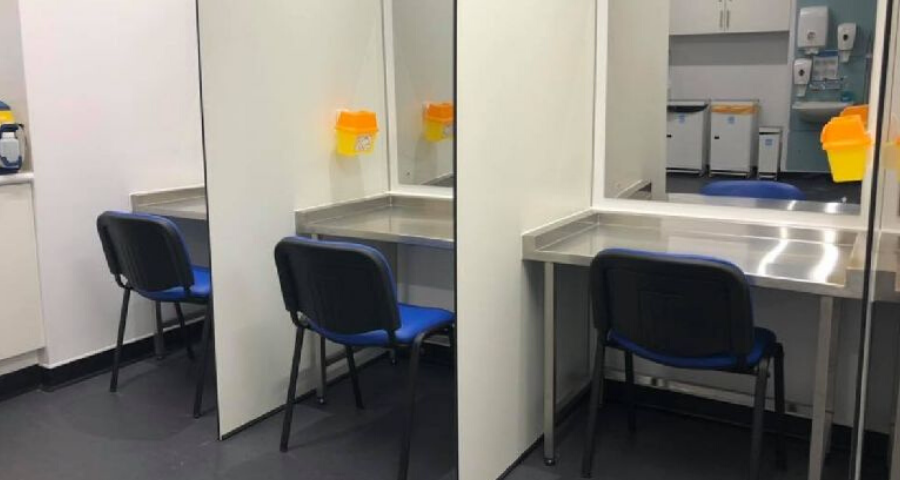
Researchers from Glasgow Caledonian University are to spend 30 months leading a study to evaluate the city’s newly opened Enhanced Drug Treatment service which provides heroin-assisted treatment.
The University will work with NHS Greater Glasgow and Clyde, Kings College London and the MRC/CSO Social and Public Health Sciences Unit at the University of Glasgow to analyse the outcomes of the programme, which opened in December 2019.
The facility, the first of its kind in Scotland, prescribes pharmaceutical-grade diamorphine to patients, which is then self-administered under the supervision of a nurse.
The provision of the Enhanced Drug Treatment Service (EDTS) was developed by Glasgow City Health and Social Care Partnership in response to an increase in HIV prevalence among people who inject drugs and an increase in drug-related deaths.
Dr Andrew McAuley, a senior research fellow in the School of Health and Life Sciences at GCU and principal investigator on the study, said:
“The research is an evaluation of how the heroin- assisted treatment service is implemented within the Glasgow context of widespread polydrug use, epidemic levels of drug-related deaths and an ongoing outbreak of HIV among people who inject drugs.
“There is already a strong body of evidence to show that heroin- assisted treatment as an intervention is effective within a controlled research environment.
“However, little is known about how best to implement heroin-assisted treatment in the real world, so we are conducting what we call an implementation science evaluation which tries to understand how the service works, for whom, when and why.”
McAuley said it involved an in-depth exploration of the experience of people involved in the service, from patients and staff to the wider stakeholders such as police, social work and housing services.
“Ultimately, our aim of this evaluation is to understand how it’s implemented in Glasgow and to shape the development of that service moving forward,” he said.
“We also aim to create good practice guidance so that other areas in the UK and other parts of the world looking to implement this type of service can learn from the experiences in Glasgow and implement their own service effectively.”
